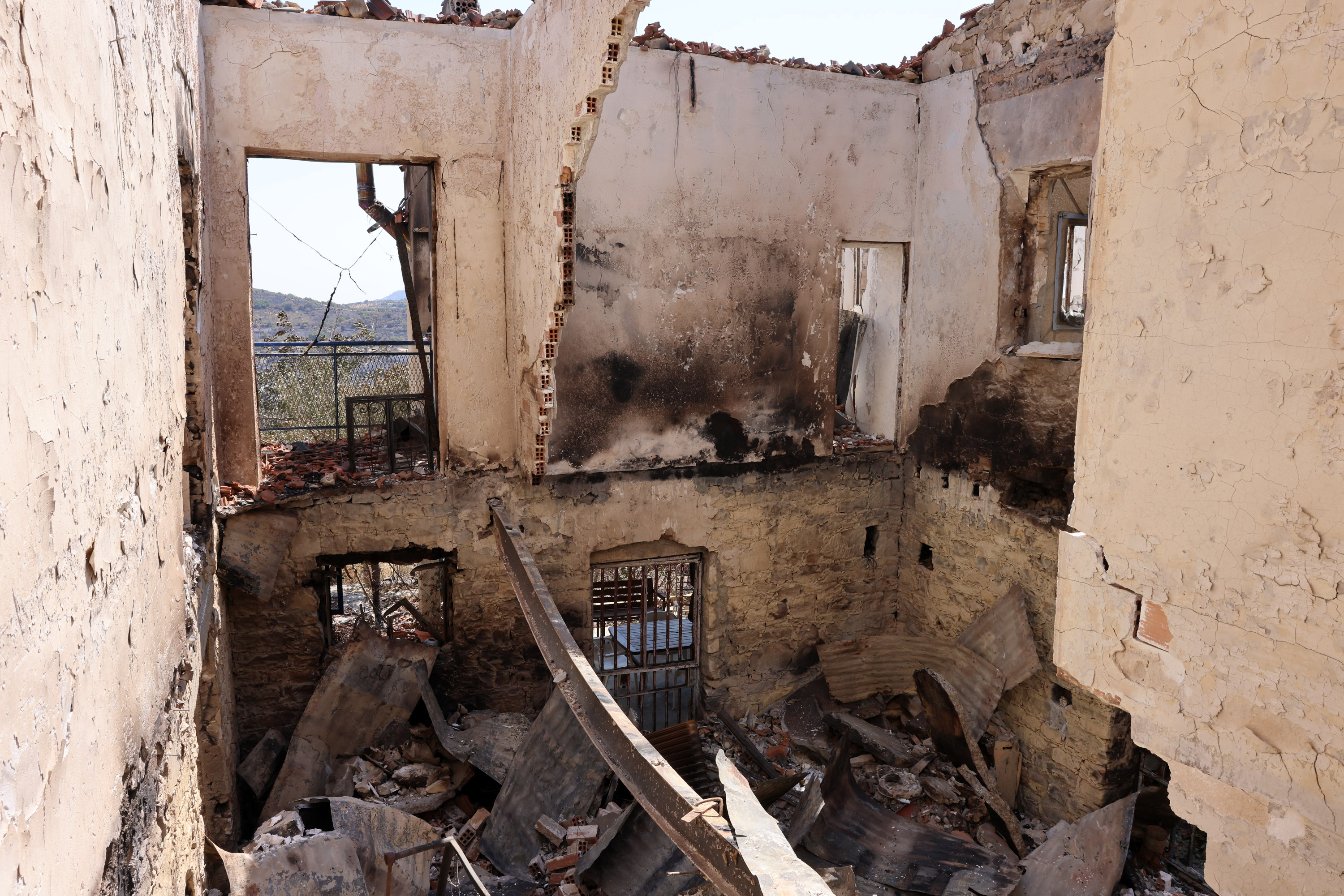The wildfire which broke out in the Limassol district on Wednesday and killed two people “did not start by chance”, Marilena Athini, the mukhtar of Malia, the village in which the fire started, said on Saturday.
Speaking to the Cyprus News Agency outside her house, which was completely destroyed in the fire, she explained that the fire broke out on the road connecting her village with the nearby village of Arsos, and “not in the riverbed or in an illegal fly tipping area”.
This location, she suggested, indicates more direct human intervention to start the fire.
In addition, she said, a fire had broken out two weeks prior in the exact same spot but was “immediately extinguished by the fire brigade”.
“If the fire brigade had responded immediately this time, we would not be where we are today,” she said.
She then recounted the events of Wednesday, saying that she had been driving to the village from Limassol when she was telephoned by her mother, who informed her of the fire.
At this point, she said, she instructed the village’s residents to gather in its central square.
Upon her arrival, she was met by the civil defence’s rescue department’s head Michalis Mouskallis.
“In a split second, we started to evacuate the village, as the speed at which the fire was spreading was enormous. He himself tried to put out the fire in the first two houses, including mine,” she said.
At this point, she said it is “hard for me to be here right now, outside my home, where I have my own childhood memories and those of my son”.
Once her own village was evacuated, she said, she accompanied Mouskallis on the way to the nearby village of Vasa, where he had been told there were three children left inside a house.
“In that particular house, we found not three, but 13 children, one pregnant woman, and one newborn, who we managed to get out,” she said.
She added that at the same time, “Mouskallis was informing his own units about what was going on, and they evacuated elderly people who had not noticed what was going on, who were in coffee shops or in their homes, and who had not been informed”.
Meanwhile, she said that she had loaded an “entire family” into a car, “with the children and the dog in the boot”, and then stayed in the village alone awaiting Mouskallis’ instructions.
“I stayed in one spot at the entrance to the village alone, with the flames passing over me. Michalis called me and said he would be there in a minute. He walked through the flames and then we left Vasa,” she said.
Then, she said, Mouskallis was informed of a group of people who had become trapped in a church in the village of Potamiou, and “without a second throught, he headed towards it”.
“We passed over stones and wood, a tyre blew out and we were still moving until we found the people, who were driving away in other cars,” she said.
She said the car’s tyre was then changed with help from volunteers who were fighting the fires, before she and Mouskallis saw a female driver, “panicked, stopping her vehicle, which was surrounded by flames”.
“Michalis asked me to take the car and leave, while he himself went on foot into the flames and manage to drive the girl’s vehicle to a safe place outside the village,” she said.
Once safely out of harm’s way, she, her family, and others from Malia spent Wednesday night at Pachna hospital. On Thursday night, some of the village’s residents returned to their village and slept in their cars or in its square.
She criticised what she perceived as a slow response to the fire on the part of the fire brigade, and demanded financial compensation for what she and others have lost.
“In addition to accountability, what we are asking for is compensation for all this, for the efforts of a lifetime, because, in essence, most of these people are refugees for the second time,” she said, referencing the fact that the majority of Malia’s population is made up of people who were displaced from the north in 1974 and their descendants.
Malia itself had been a predominantly Turkish Cypriot village until 1974.
In total, 14 houses in the village were completely destroyed, while across the Limassol district, 191 houses suffered damage, 93 of which were completely destroyed.






Click here to change your cookie preferences